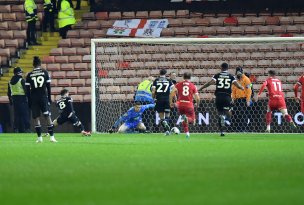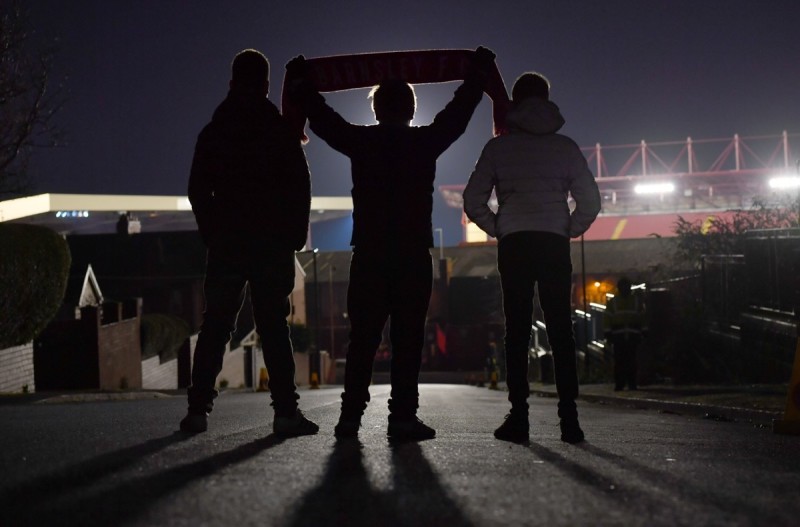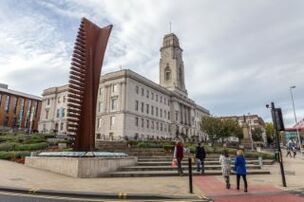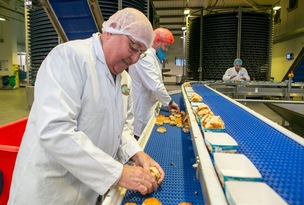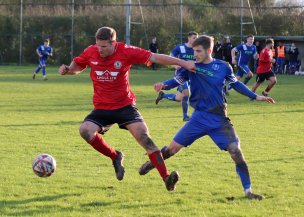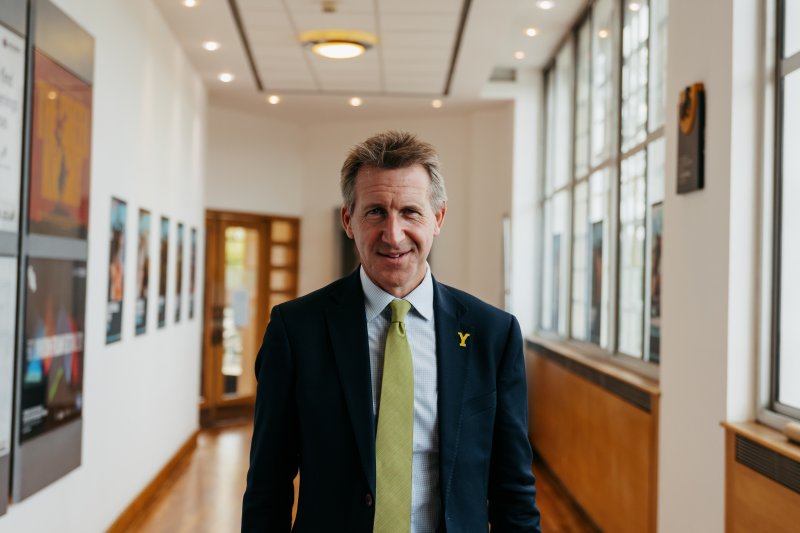Playing out season in a safe way the best plan, but there are still problems
On June 20, a year to the day that the EFL fixtures were released for 2019/20, Barnsley are due to begin their final nine games of that campaign.
There are still plenty of hoops to jump through in the next 15 days before the Reds are walking through the corridors of Queens Park Rangers’ almost-empty Loftus Road in facemasks then playing their first game in 15 weeks. But it looks as though this terrible and tragic summer will now feature football clubs in the top two divisions completing their campaigns with fans watching on screens at home rather than in the terraces.
Michael Sollbauer’s admission that he did not want to risk his family’s lives by bringing them back to Barnsley adds to doubts over whether football is coming back far too soon. But some clubs would say that, if it does not return at this point, they could go out of business. Playing the season to a conclusion has always been the EFL’s intention but it is, of course, dependant on there being no spate of failed tests or a second spike in the UK or more than half the clubs voting to end the campaign.
The EFL must have a good idea that any vote next week is likely to be in favour of playing, otherwise why on Earth did the clubs spend an estimated £150,000 each on testing to get their players and staff back in training? While there is a significant cost to restarting – not to mention some people will morally object to sport being played at this time – completing the season causes fewer problems than deciding the tables on a points per game basis.
While Barnsley have been in deep trouble since the opening month of the season – some would say since the summer transfer window – Charlton Athletic only dropped into the relegation zone days before the season was paused. Could the Addicks, who are battling for their financial survival amid ownership issues, be legitimately sent down on that basis if the games are not completed?
It would make any sportsfan cringe and legal experts prick up their ears. But there are also problems with playing to a finish. Charlton have confirmed three players do not want to play, while an ‘appalled’ QPR – the Reds’ next scheduled opponents – have criticised the EFL’s timing of the June 20 announcement and are ‘vehemently opposed’ to it. Barnsley seem happy as long as the finish date is pushed back until the end of July.
Some very odd things could happen if the season continues, with the threat of failed tests and quarantine hanging over all players. What is to stop clubs who are assured of a mid-table position letting all their out-of-contract and loan players leave to save money on wages and therefore becoming a much easier opponent, gifting an advantage to the teams fighting at top and bottom who are yet to play them?
No decision will please everyone but – once it had been established that it was not financially feasible to pause football until fans could return to stadia due in part to the fear of having to give back money from TV deals – a safe conclusion to the season is surely the solution that will leave the least problems and resentment. And, for many, football’s return will be a massive morale boost even if they watch from home. But this strange problem is far from solved.
Buying other clubs undermines casewhen asking fans and players for helpThe stories around Barnsley in the last months conjure up an image of their owners with fistfuls of cash, throwing it towards a map of European football which they have turned into a Monopoly board while, in the other hand, they ask for money from players and fans.
At the same time as chief executive Dane Murphy is asking his first team players to take a wage deferral or paycut, and hoping that fans pay for games they may never see live, his bosses are adding extra clubs to their portfolio. Having already secured an interest in Swiss outfit FC Thun, Paul Conway and Chien Lee last month acquired Belgian top flight club KV Oostende while they are actively pursuing another purchase in Scotland.
There is a clear and jarring disconnect between the cash the owners are happily spending in other countries on other clubs and the attitude they are taking towards the one they have owned the longest. Murphy has claimed that the Reds’ financial future is under a ‘severe threat’ and warned that, should all season ticket holders choose a refund for their four remaining 2019/20 tickets instead of a voucher or donation to the NHS, then the Reds would lose £400,000.Fans have been asked to pay £249 for a season ticket in 2020/21 which could be behind closed doors.
Barnsley have thousands of passionate and committed supporters, and many of them are – despite possibly suffering financially themselves – willing to help the club they love survive an emergency situation and a threat to its existence. But that loyalty is being tested by the owners hoovering up other clubs while asking for emergency financial help from supporters. A similar logic can be applied to Barnsley’s players.
Head coach Gerhard Struber has been rightly commended for deferring a quarter of his wages for three months. But there is a big difference between negotiating with one man, who is in his 40s and has had a long career in football, and 20-odd players of varying ages and on wildly differing salaries, who know they are among the lowest paid in a division in which many others have not deferred pay. They will have seen the stories from Belgium and Scotland and may question the idea of cutting their wages when the club owners clearly have enough funds to buy other teams. The owners may say it is their money and they can do what they want with it but that could leave fans and players saying the same thing back to the owners as it totally undermines the ‘we’re all in it together and we all have to make sacrifices’ argument. Ultimately, the owners may be banking on the supporters putting those frustrations aside and paying to keep the club going.
Conway shows willingness to fight for clubThe Reds have done many good things during this crisis. Their donation of thousands of tickets to NHS workers should be commended as well as the regular release of updates and interviews from players and staff to keep fans involved and informed.
They topped up their furloughed staff’s wages to 100 per cent, although some may question why a club owned by billionaires needs to dip into the government funding pot designed to help struggling businesses.It is also encouraging for fans that the owners are willing to fight for clubs who allegedly broke financial fair play rules to be punished, potentially saving Barnsley.Co-owner Paul Conway, right, has threatened to sue should they be relegated and other clubs not be given points deductions.
The Reds have also sent a letter to the EFL this week claiming that completing the season behind-closed-doors is unfair because it denies clubs home advantage and unbalances squads due to contracts ending, so they are asking for relegated clubs to be paid a one-off parachute payment. Barnsley certainly seem to be at the forefront of discussions on the conclusion of the season. As for survival on the pitch, they are likely to have to win at least five of their last nine games to cut the seven-point gap between them and safety – a daunting task considering they have won just eight of 37 so far and are bottom of the league.
It is highly unlikely but not impossible. The Reds have not been on relegation form since Gerhard Struber took over in November and, if they return from this enforced break with more freshness and motivation than other teams with less to play for – and if they make a very good start – then they may just have an outside chance.While they will not have the support of a home crowd in their four remaining Oakwell fixtures, due to games being played behind closed doors, some of the young and inexperienced players may prefer the lack of pressure from supporters and their performances may improve.
Season ticket decision almost impossible with this solution problematic like others The decision on what season tickets to offer in this ever-changing landscape must have been nearly impossible for the Reds to make, and every answer comes with a level of risk. If they put the prices low and the virus clears up, they lose money. If they go high and fans pay for a shortened season that they must watch on television, then supporters will feel short-changed. Wait to see what happens in the next few months, and the club would miss out on vital revenue from advanced season ticket purchases.
In the end, they decided to reduce prices for a ‘membership’ which will allow people to watch all the 2020/21 games, whether they are allowed in the stadium or have to view from home. Inevitably this creates problems. Some fans will not want to pay a large sum for potentially no live football. Also, if a family of four will all watch the live stream on the same TV or computer, should they buy one ticket or four? But these are the issues clubs up and down the country will be grappling with at the moment, not just Barnsley, and I cannot come up with a single, better solution so am reluctant to criticise on this. More than 1,000 snapped up memberships in the first week of sales which is impressive backing. Ultimately some fans will pay up as much to support the club as to actually watch the games.
Losses could hurt transfer policy All football clubs face an uncertain few months or years ahead and, while the Huddersfield Town owner’s claim that 50 or 60 of the 71 in the EFL will go out of business is absolutely worst case scenario, many are likely to reduce their spending and come close to collapse. This could impact Barnsley’s transfer model of developing players to sell on. While it remains to be seen if they will still have the funds to spend millions on incoming players as in recent years, it is unlikely that as many clubs will have as much money to sign those players once they have been developed.






